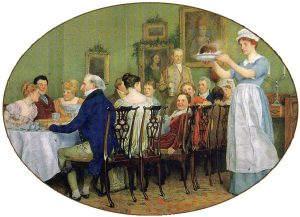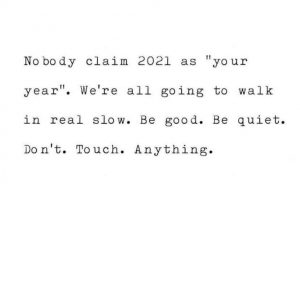City life is, by definition, noisy, and Oakland is certainly no exception. Not only that, but according to our local news source, Oaklandside, the neighborhood where I live in is the East Bay’s hot spot for going out.
But beginning in mid-afternoon on Sunday, December 24, and continuing through all day on December 25, it was so quiet around here that I kept looking outside just to see if anyone at all was around. When I went for a walk I discovered all the restaurants and bars were closed; only the drug and convenience stores stayed open and they weren’t doing much business.
Despite this being a city with an ethnically diverse population and despite the polite references to the “holiday season,” the truth is that everything shuts down for Christmas.
And while I love the idea of having occasional holidays when most everything is closed, it bothers me that the day when it is most absolute is a very distinctly Christian one. Even if you want to argue that U.S. Christmas is at heart a secular holiday – and giving the focus on shopping days and “the economy” that is not an unreasonable argument – it is still far from universal.
People who aren’t invested in Christmas accommodate themselves to the holiday in various ways, some by strictly following their own traditions, others by adopting some form of celebration that elides over the religious part. I know a lot of people who put a huge store by the holiday who are in not religious in any significant way.
Now I was raised Episcopalian in a very U.S. and Christian culture, so celebrating Christmas is in no way alien for me. But the fact that the whole city shuts down for something that is, in fact, not universal still leaves me unsettled.
If I were still religious, I might not even notice. But I am not. It is not that I am “lapsed,” but rather that I realized that I do not believe in any kind of god. And while I have quite a bit of respect for the teachings of Jesus, I don’t think he’s the “Son of God.”
My connection to Christmas, once I outgrew Santa Claus, was always religious. It was church and ritual and music – especially the music. Yes, we had family gatherings and gifts and fancy meals, but what I miss from that time is choir practice and midnight services.
For years after I left religion behind I would seek out church over Christmas just for nostalgia, but I’ve reached my limit with that. I can tell a story of something I loved in my past with the best of them, but nostalgia can lead to the slippery slope of pining for the good old days even though we all know they weren’t good for many.
I’m nostalgic for a better future, not for the experiences of the past.
The thing is, I want a holiday that means something to me, not just an excuse for a fancy meal or a family gathering. And I want that holiday to mean something – perhaps many different things – to everyone. Continue reading “Universal Holidays”…

 We have survived the holidays (they were actually lovely). But this year they required (administrative) flexibility of the sort generally associated with yogis and exotic dancers. Welcome to life in the time of COVID, and do let me know if any of this sounds familiar.
We have survived the holidays (they were actually lovely). But this year they required (administrative) flexibility of the sort generally associated with yogis and exotic dancers. Welcome to life in the time of COVID, and do let me know if any of this sounds familiar.
 It’s the holiday season, or so I’m told. I have signally failed to organize present-giving this year–to the point where my husband and I were yelling “I dunno, what do YOU want?” at each other from different rooms Saturday afternoon. The one thing I have done is to make some books as gifts. This is utterly self-serving: I found a couple of bookbinding projects that I wanted to do, and thought: who would like the end project? And there you go.
It’s the holiday season, or so I’m told. I have signally failed to organize present-giving this year–to the point where my husband and I were yelling “I dunno, what do YOU want?” at each other from different rooms Saturday afternoon. The one thing I have done is to make some books as gifts. This is utterly self-serving: I found a couple of bookbinding projects that I wanted to do, and thought: who would like the end project? And there you go.